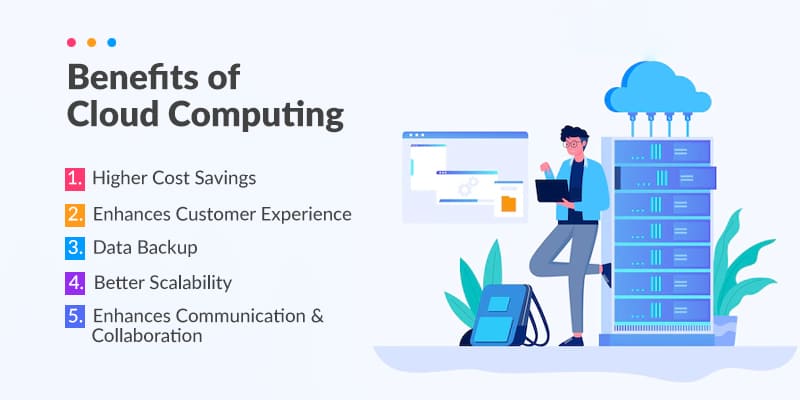1. Cost Savings
Reduced Capital Expenditure: No need for physical hardware, data centers, or on-premises infrastructure.
Pay-as-You-Go Pricing: Pay only for the resources and services you use, avoiding over-provisioning.
2. Scalability
On-Demand Resources: Easily scale resources up or down to meet demand, whether for traffic spikes or slower periods.
Elasticity: Handle large workloads without requiring long-term planning or investment in infrastructure.
3. Flexibility and Accessibility
Remote Access: Access resources and services from anywhere with an internet connection.
Collaboration: Teams can work on the same data and applications in real time, improving productivity.
4. Enhanced Performance
Speed: Access to high-performance computing resources that may exceed local capabilities.
Global Reach: Cloud providers offer services across multiple geographic regions for faster delivery and reduced latency.
5. Security
Advanced Security Features: Encryption, firewalls, and intrusion detection systems provided by cloud providers.
Compliance: Many providers adhere to strict regulatory requirements, such as GDPR or HIPAA.
6. Automatic Updates and Maintenance
Cloud providers manage software updates, hardware maintenance, and system upgrades, reducing the burden on IT teams.
7. Disaster Recovery and Backup
Reliability: Built-in redundancies and failover mechanisms ensure data and applications remain accessible.
Backup Options: Simplifies disaster recovery planning with automatic data backups and restoration.
8. Innovation and Integration
Access to Cutting-Edge Technology: AI, machine learning, IoT, and big data tools are often integrated into cloud platforms.
Seamless Integration: Easily connect with third-party services and APIs to expand functionality.
9. Environmental Sustainability
Energy Efficiency: Shared resources reduce the carbon footprint compared to maintaining individual data centers.
Optimized Usage: Providers optimize infrastructure usage, improving energy efficiency.
10. Support for Remote Work
The cloud enables secure, flexible, and reliable work environments for remote and distributed teams.



No comments:
Post a Comment